Home Security Tips for Digital Nomads
In today's fast-paced world, the allure of the digital nomad lifestyle is undeniable. Imagine sipping coffee at a beachside café in Bali or working from a cozy mountain cabin in the Alps. While these experiences are thrilling, they come with their own set of challenges, particularly when it comes to home security. As a digital nomad, you may find yourself constantly on the move, making it essential to protect your belongings and data effectively. This article provides you with essential home security tips specifically designed for digital nomads, helping you safeguard your assets while you travel or work remotely from various locations.
Digital nomads face unique security challenges that can turn a dream trip into a nightmare. From unexpected theft to data breaches, the risks are real and often unavoidable. When you're living out of a suitcase, your belongings become vulnerable, and your digital life can be exposed to potential threats. Consider this: what happens if your laptop, containing sensitive client information, gets stolen? Or if your home base is broken into while you're away? These scenarios emphasize the importance of proactive security measures. By understanding the risks, you can take steps to mitigate them, ensuring that your adventures are not marred by security concerns.
Your primary residence should be a secure haven, even when you're not there. After all, it’s your sanctuary, and protecting it should be a top priority. Start by assessing your current security measures. Are your doors and windows reinforced? Do you have a security system in place? Investing in effective strategies to fortify your home can make a significant difference. For instance, installing a security system with alarms and cameras can deter intruders. Additionally, using smart locks allows you to control access to your home remotely, providing peace of mind while you're away.
Selecting an appropriate security system is crucial for any digital nomad. With so many options available, it can be overwhelming to decide what's best for your needs. Here’s a quick overview of various types of security systems:
| Type of Security System | Description |
|---|---|
| Alarm Systems | Alerts you and authorities in case of a break-in. |
| Video Surveillance | Allows you to monitor your property remotely through cameras. |
| Smart Home Technology | Integrates with your smartphone for control and monitoring. |
By understanding these options, you can make an informed choice that aligns with your lifestyle and security needs.
Incorporating smart home devices into your security strategy can significantly enhance your protection. Devices such as smart cameras, motion sensors, and doorbell cameras not only provide real-time alerts but also allow you to monitor your home from anywhere in the world. Imagine being able to check in on your home while lounging on a beach or working in a bustling city café. These devices can be easily integrated into your existing security system, providing an extra layer of safety that every digital nomad should consider.
Investing in professional monitoring services is another option worth considering. With 24/7 monitoring, you can rest easy knowing that any alarms triggered will be responded to immediately. This not only enhances your peace of mind but also ensures that your home is being watched over, even when you’re thousands of miles away. Think of it as having a virtual security guard keeping an eye on your haven while you explore the world.
In our digital age, securing your online presence is just as vital as protecting your physical belongings. The last thing you want is to fall victim to a data breach while you're busy enjoying your travels. To safeguard your sensitive information, start by using strong, unique passwords for all your accounts. A password manager can help you keep track of them. Furthermore, employing two-factor authentication adds an extra layer of security, making it much harder for unauthorized individuals to gain access to your accounts.
While on the move, maintaining security is essential. Here are some practical travel safety tips for digital nomads:
- Securing Your Belongings: Always keep your valuables close to you. Use anti-theft bags or locks to deter pickpockets.
- Choosing Safe Accommodations: Look for places with good security features, such as surveillance cameras and secure entry points.
- Being Aware of Your Surroundings: Stay alert and trust your instincts. If something feels off, it probably is.
Selecting the right place to stay can significantly impact your safety. When searching for accommodations, consider security features, location, and reviews from fellow travelers. A well-reviewed place with security measures in place can provide peace of mind, allowing you to focus on your work and adventures without unnecessary worry.
Staying alert is key to personal safety. Being aware of your environment and recognizing potential threats can make a world of difference. Take proactive steps to mitigate risks while traveling, such as avoiding poorly lit areas at night and keeping your belongings secure. Remember, safety is not just about having the right tools; it’s also about staying vigilant and trusting your instincts.
Q: What should I do if my belongings are stolen while traveling?
A: Report the theft to local authorities immediately and contact your bank or credit card company if sensitive information was compromised.
Q: How can I ensure my online accounts are secure?
A: Use strong, unique passwords, enable two-factor authentication, and be cautious of phishing attempts.
Q: Are smart home devices worth the investment?
A: Yes, they provide added security and peace of mind, allowing you to monitor your home remotely.
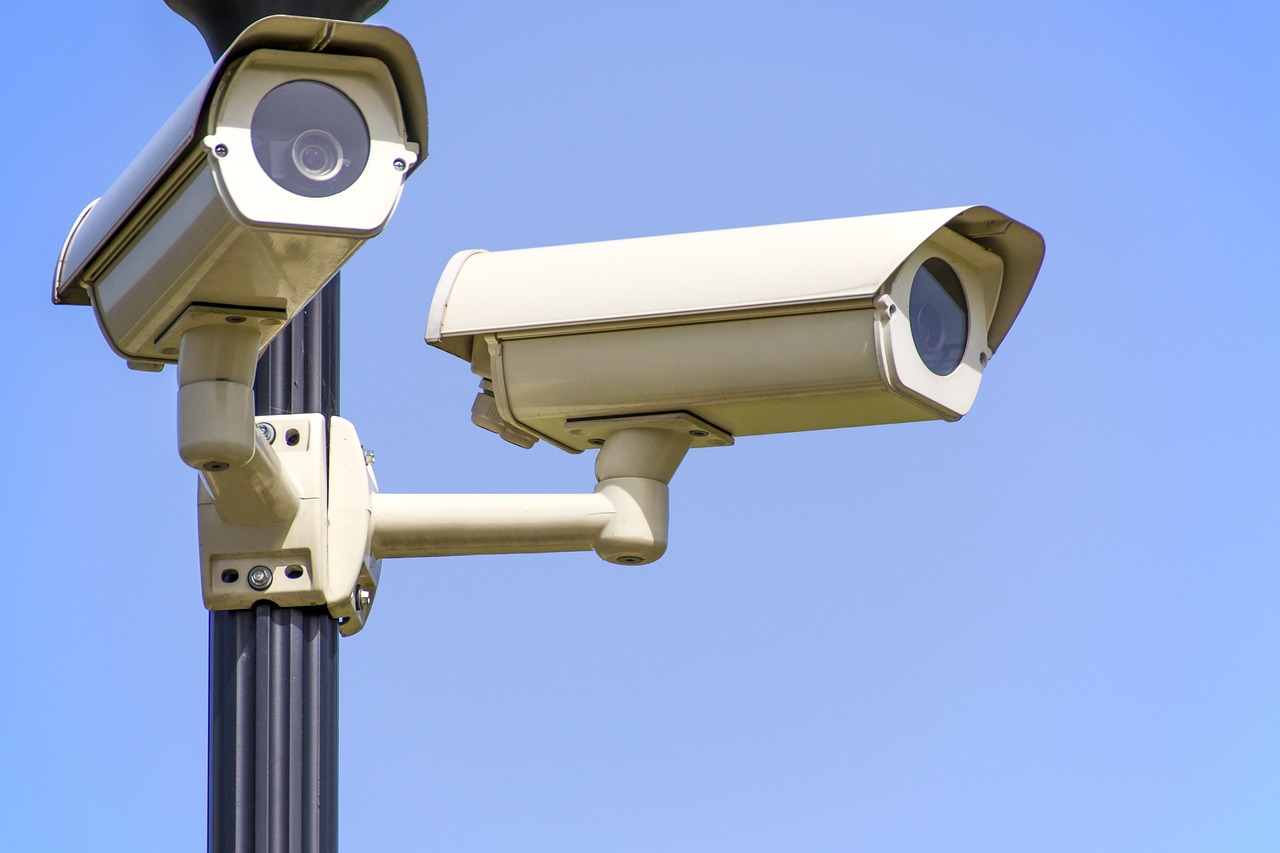
Understanding the Risks
As a digital nomad, you’re living a lifestyle that many dream of—working from exotic locations, exploring new cultures, and enjoying the freedom that comes with remote work. However, this lifestyle is not without its challenges, especially when it comes to security. Understanding the risks you face is crucial to protecting your belongings and personal data. So, what are these risks that could put a damper on your adventures?
First off, let’s talk about **theft**. When you’re constantly on the move, your possessions are often in transit, making them more vulnerable to theft. Imagine leaving your laptop unattended at a café while you grab a coffee. In the blink of an eye, it could be gone! According to statistics, theft rates in tourist-heavy areas can be significantly higher than in other regions, so vigilance is key.
Next, there’s the risk of **data breaches**. With so many public Wi-Fi networks available, connecting to the internet can feel like a breeze. However, these networks can be a hacker’s playground. If you’re not careful, you could unwittingly expose sensitive information, such as bank details or personal documents. Think of public Wi-Fi as a crowded marketplace where anyone can overhear your conversations—would you share your secrets there? Probably not!
Moreover, there’s the potential for **property damage**. Whether it’s a natural disaster or a simple plumbing issue, your home base can be affected while you’re away. Imagine returning from a trip only to find that a pipe burst and flooded your apartment. Not only would this be a headache, but it could also lead to significant financial loss.
To further illustrate these risks, let’s take a look at some common scenarios that digital nomads might encounter:
| Risk Type | Potential Impact | Preventive Measures |
|---|---|---|
| Theft | Loss of valuable items (laptops, cameras) | Use anti-theft bags, stay alert in crowded places |
| Data Breaches | Compromised personal information | Use VPNs, avoid public Wi-Fi for sensitive transactions |
| Property Damage | Financial loss, emotional distress | Consider home insurance, have a trusted neighbor check on your place |
In conclusion, while the digital nomad lifestyle offers incredible opportunities, it also comes with its own set of risks. By being aware of these challenges and taking proactive measures, you can significantly reduce the likelihood of encountering issues. Remember, it’s all about being prepared and staying one step ahead, so you can focus on what truly matters—enjoying your travels and making the most of your experiences.
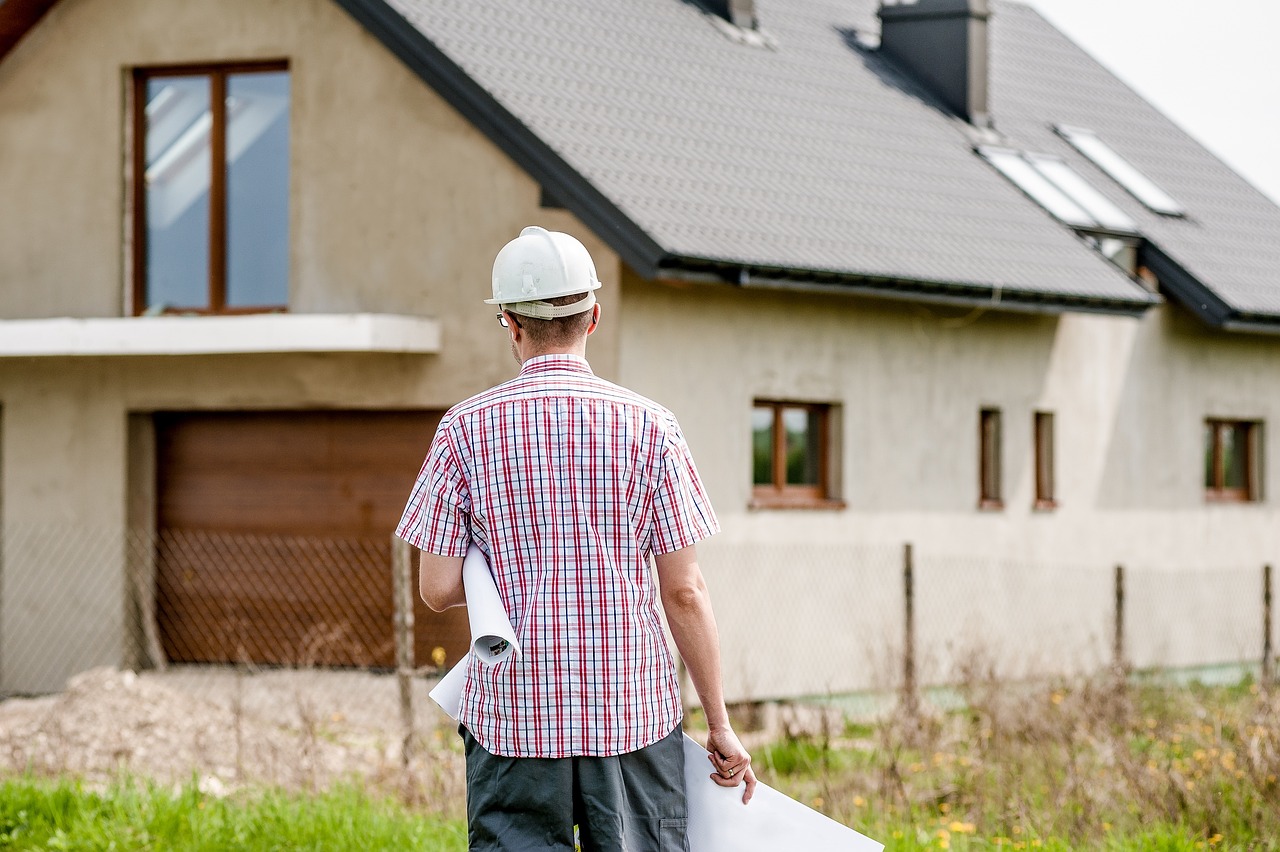
Securing Your Home Base
As a digital nomad, your primary residence is not just a place to crash; it’s your sanctuary, your command center, and a vital part of your life. It’s essential to ensure it’s as secure as possible, especially when you’re frequently away. Imagine coming home after a long trip only to find your belongings ransacked or, worse, your personal data compromised. To avoid such nightmares, it’s crucial to implement effective security measures that provide peace of mind while you’re exploring the world.
First and foremost, consider installing a comprehensive security system. A state-of-the-art security system can deter potential intruders and alert you to any suspicious activity. Look for systems that offer features like motion sensors, door/window sensors, and surveillance cameras. For instance, a combination of indoor and outdoor cameras can provide a complete view of your property, allowing you to monitor it remotely through your smartphone. This way, even while sipping coffee in a bustling café halfway across the globe, you can keep an eye on your home.
But it doesn’t stop there! Smart locks have become a game-changer in home security. Gone are the days of fumbling with keys; with smart locks, you can control access to your home with your smartphone. You can grant temporary access to friends or family when you’re away, ensuring that your home remains secure without compromising convenience. Additionally, make sure to reinforce entry points like doors and windows. Investing in solid doors, deadbolts, and window locks can significantly enhance your home’s defenses. Think of your home as a fortress; the stronger the walls, the safer you’ll feel.
When it comes to selecting a security system, it’s important to understand the options available to you. Here’s a quick overview of some popular types of security systems:
| Type of Security System | Features | Pros | Cons |
|---|---|---|---|
| Alarm Systems | Sound alarms, motion detection | Deterrent for intruders | Can be triggered by false alarms |
| Video Surveillance | CCTV cameras, remote viewing | Visual evidence, remote monitoring | Can be costly |
| Smart Home Technology | Integrated devices, app controls | Convenient, customizable | Requires reliable internet |
Each system has its strengths and weaknesses, so it’s essential to evaluate your specific needs and budget. Are you more concerned about preventing break-ins, or do you want to keep an eye on your pets while you’re away? Answering these questions will help you make an informed choice.
Smart home devices are not just a trend; they’re a powerful tool for enhancing your home security. Devices like smart cameras and motion sensors can be integrated into your security strategy to provide an extra layer of protection. For example, a smart camera can send you notifications when it detects movement, allowing you to take immediate action if something seems off. These devices often come with features like night vision and two-way audio, so you can see and communicate with anyone at your door, regardless of where you are.
Investing in professional monitoring services can significantly enhance your home security. These services provide 24/7 monitoring, meaning that trained professionals are always keeping an eye on your home. In the event of an alarm, they can quickly respond, alerting the authorities if necessary. This level of vigilance can be a game-changer, especially for digital nomads who spend extended periods away from home. Imagine the peace of mind knowing that someone is watching over your sanctuary while you’re off exploring new horizons.
In summary, securing your home base is not just about installing locks and alarms; it’s about creating a comprehensive security ecosystem that protects your physical and digital assets. By investing in the right systems and being proactive, you can travel with confidence, knowing that your home is safe and sound.
- What is the best security system for a digital nomad? The best security system for a digital nomad combines smart technology with professional monitoring services, providing both convenience and peace of mind.
- How can I secure my digital assets while traveling? Use strong passwords, enable two-factor authentication, and regularly update your software to protect your digital assets.
- Are smart locks safe? Yes, smart locks can be very secure if you choose reputable brands and follow best practices for password management.
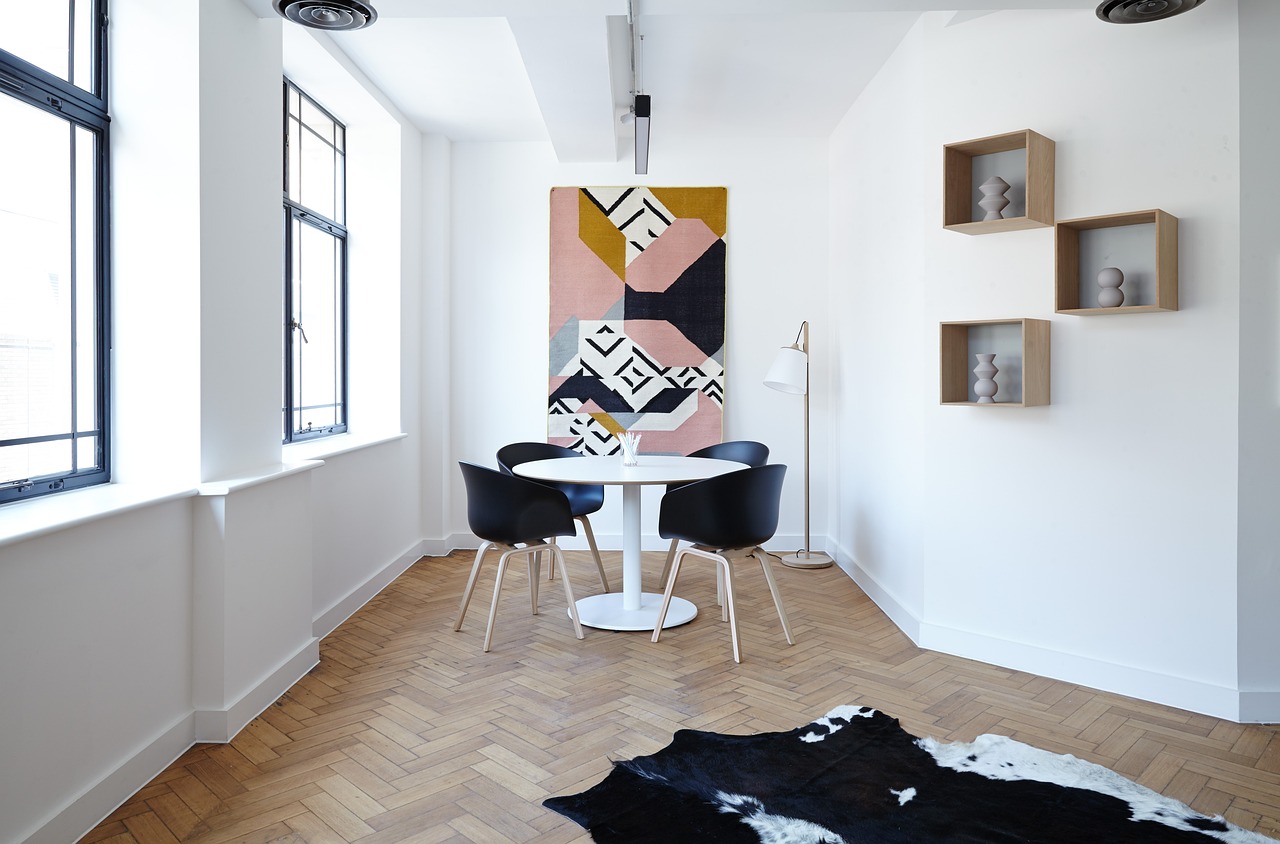
Choosing the Right Security System
When it comes to safeguarding your home, choosing the right security system is like picking the perfect shield for a knight. You want something that not only protects but also adapts to your unique lifestyle as a digital nomad. With a myriad of options available today, it can feel overwhelming. But don't worry! Let's break it down so you can make an informed choice that suits your needs and keeps your belongings safe.
First off, consider the type of security system that best fits your lifestyle. Are you someone who travels frequently and may not be home for weeks at a time? If so, a smart security system with remote access could be your best bet. These systems allow you to monitor your home from anywhere in the world via your smartphone. Imagine being on a beach in Bali, sipping a coconut, while having the ability to check your security cameras back home. Sounds appealing, right?
Next, let’s talk about the different types of security systems you can choose from. Here’s a quick rundown:
- Alarm Systems: These are the classic choice. They alert you and your neighbors if someone tries to break in. Some even come with smartphone notifications.
- Video Surveillance: Cameras can be placed around your property to monitor activity. Many modern cameras come with night vision and motion detection features.
- Smart Home Technology: This includes devices like smart locks and doorbell cameras that can be integrated into your home network, allowing for seamless control.
Now, let’s dive deeper into one of the most exciting aspects of modern security systems: smart home devices. These gadgets not only enhance your security but also provide convenience. For instance, a smart lock allows you to lock or unlock your door remotely. Imagine forgetting to lock your door as you rush to catch a flight. With a smart lock, you can do it from the airport! Plus, many of these devices can send you alerts if someone tries to tamper with them.
Another vital consideration is whether to opt for professional monitoring services. These services can provide you with 24/7 monitoring, ensuring that if an alarm goes off, someone will respond immediately. This can be especially reassuring for digital nomads who may be away for extended periods. It’s like having a vigilant guardian watching over your home while you’re off exploring the world.
In conclusion, choosing the right security system is about finding the right balance between technology, convenience, and peace of mind. Whether you go for a traditional alarm system or embrace the latest smart home technology, ensure that it fits your lifestyle and provides the protection you need. After all, your home is your sanctuary, and it deserves the best defense!
Q: What is the best type of security system for a digital nomad?
A: The best type of security system for a digital nomad typically includes smart home technology with remote access features, allowing you to monitor and control your home from anywhere.
Q: Are smart locks safe?
A: Yes, smart locks are generally safe, especially those that use encryption and have additional security features like two-factor authentication.
Q: Should I invest in professional monitoring services?
A: If you travel frequently and want peace of mind, professional monitoring services can be a great investment, as they provide 24/7 surveillance and immediate response to alarms.
Q: Can I integrate different security devices into one system?
A: Absolutely! Many modern security systems allow for integration of various devices, such as cameras, alarms, and smart locks, giving you a comprehensive security setup.
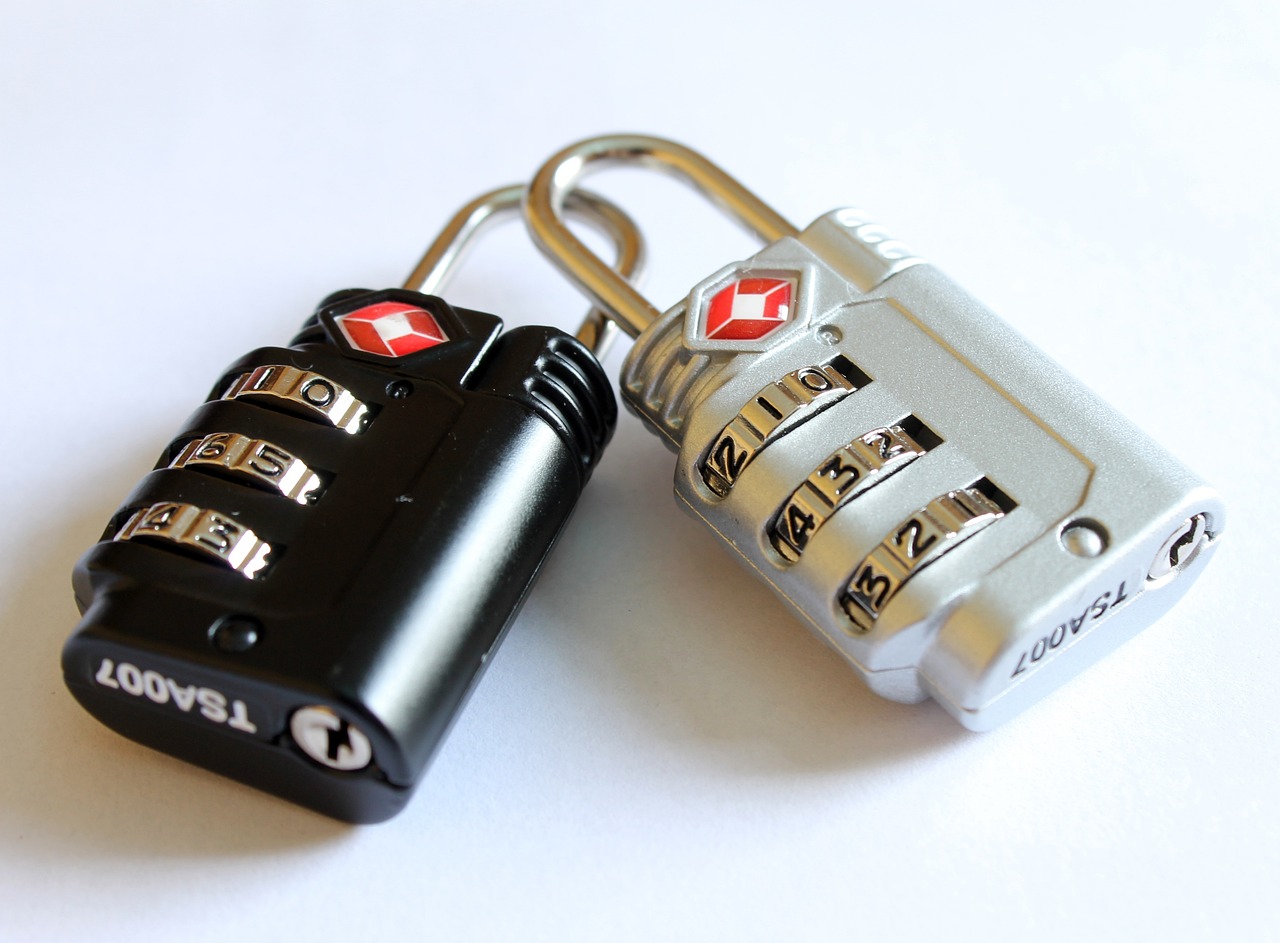
Smart Home Devices
In the rapidly evolving world of technology, have emerged as essential tools for enhancing security in your living space. These gadgets not only provide convenience but also act as vigilant guardians, ensuring that your home remains safe and sound, even when you are miles away. Imagine being able to check on your home from the other side of the globe with just a tap on your smartphone. Sounds incredible, right? Well, that’s the power of smart home technology!
When it comes to fortifying your home security, there are several types of smart devices that can be integrated seamlessly into your existing setup. Here are a few popular options:
- Smart Cameras: These devices allow you to monitor your property in real-time, sending alerts directly to your phone when motion is detected. Some models even offer two-way audio, letting you communicate with anyone on your property.
- Smart Locks: Forget about traditional keys! Smart locks enable you to lock and unlock your doors remotely. You can grant access to guests or service providers without being physically present, which is perfect for digital nomads.
- Motion Sensors: These sensors can detect movement and trigger alarms or notifications. They can be placed at entry points or throughout your home to create a comprehensive security network.
Integrating these smart devices into your home security strategy can create a multi-layered defense system. For instance, a smart camera can be paired with motion sensors to provide immediate alerts if any unusual activity occurs. This synergy not only enhances security but also offers you peace of mind, knowing that your home is under constant surveillance.
Moreover, many of these devices come with user-friendly apps that allow you to monitor your home from anywhere in the world. You can check live feeds from your cameras, receive alerts about suspicious activity, and even control your locks—all from your smartphone. This level of accessibility is invaluable for digital nomads who are constantly on the move.
However, it’s crucial to choose devices that are compatible with each other and can be easily integrated into a cohesive security system. Look for products that support popular smart home ecosystems, such as Google Home or Amazon Alexa, to ensure seamless operation and control.
In summary, investing in smart home devices is not just about convenience; it’s about enhancing your overall security. With the right setup, these gadgets can transform your home into a fortress, providing you with the confidence to travel freely while knowing that your belongings and data are well-protected.
Q: Do I need a professional to install smart home devices?
A: While many smart home devices are designed for easy DIY installation, some may require professional help, especially if they involve complex wiring or integration with existing security systems.
Q: Can smart home devices be hacked?
A: Like any internet-connected device, smart home gadgets can be vulnerable to hacking. However, you can enhance their security by using strong, unique passwords and enabling two-factor authentication where available.
Q: Are smart home devices worth the investment?
A: Absolutely! The peace of mind and convenience they offer, especially for digital nomads, makes them a worthwhile investment for anyone looking to enhance their home security.
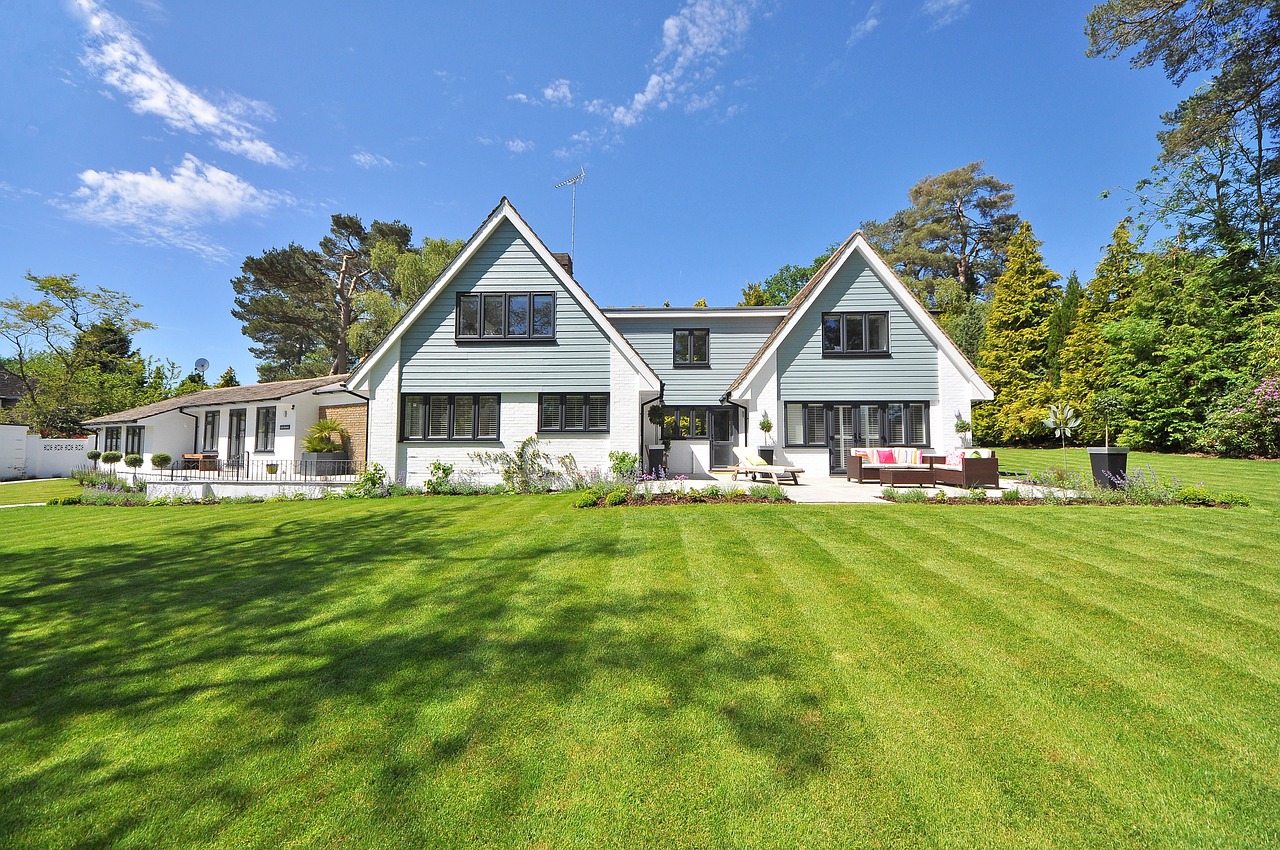
Monitoring Services
When it comes to securing your home, can be a game-changer, especially for digital nomads who are frequently away from their primary residence. Imagine having a team of professionals watching over your property 24/7, ready to spring into action at the first sign of trouble. This peace of mind is invaluable when you’re exploring new cities or working remotely in a cozy café. But what exactly do these services offer, and how can they enhance your security?
Most monitoring services provide a comprehensive solution that includes constant surveillance through cameras, alarms, and motion detectors. The moment any suspicious activity is detected, these services can alert the authorities or notify you directly. This level of responsiveness can be crucial in preventing theft or property damage. Think of it as having a digital watchdog that never sleeps!
Additionally, many monitoring services offer mobile apps, allowing you to check on your home from anywhere in the world. You can view live feeds from security cameras, receive alerts, and even control smart devices in your home—all at your fingertips. This integration of technology means that even while you're thousands of miles away, you can still feel connected and in control of your living space.
Here’s a quick overview of what to consider when choosing a monitoring service:
| Feature | Benefits |
|---|---|
| 24/7 Monitoring | Constant surveillance and rapid response to emergencies. |
| Mobile Access | Control your security system and view live feeds from anywhere. |
| Professional Installation | Expert setup ensures your system is fully optimized. |
| Emergency Response | Immediate action taken in case of a security breach. |
Of course, while monitoring services provide a robust layer of security, they are most effective when combined with other measures. Think of them as the icing on the cake—delicious, but not the only ingredient. Pairing monitoring services with strong locks, security cameras, and a neighborhood watch can create a fortress around your home base.
In summary, investing in a monitoring service can significantly enhance your home security strategy. It not only provides immediate alerts and professional oversight but also allows you to maintain a sense of control over your property, no matter where your travels take you. So, as you plan your next adventure, consider how a monitoring service can give you that extra layer of protection, allowing you to focus on what truly matters—your experiences and memories.
- What is a monitoring service? A monitoring service is a professional security solution that provides 24/7 surveillance of your home, alerting you and authorities in case of any suspicious activity.
- How do I choose the right monitoring service? Look for features like mobile access, emergency response times, and customer reviews to find a service that fits your needs.
- Can I integrate smart devices with monitoring services? Yes! Many monitoring services allow you to connect smart home devices for enhanced security and control.
- Is professional installation necessary? While some systems can be self-installed, professional installation ensures that your security system is set up optimally.

Protecting Your Digital Assets
In today's hyper-connected world, where your laptop and smartphone are practically extensions of yourself, is more crucial than ever, especially for digital nomads who are constantly on the move. Imagine losing your laptop with all your important documents, or worse, having your bank account hacked while you're sipping coffee in a bustling café. It's a nightmare scenario that can easily become a reality if you're not vigilant. So, how can you safeguard your sensitive information and maintain your peace of mind while exploring the globe?
First and foremost, strong passwords are your first line of defense. You wouldn’t leave your front door open when you go out, so why would you use "password123" for your accounts? Instead, create complex passwords that include a mix of uppercase and lowercase letters, numbers, and special characters. To make this easier, consider using a password manager. These handy tools not only generate strong, unique passwords for each of your accounts but also store them securely, so you don’t have to remember every single one.
But wait, there's more! Implementing two-factor authentication (2FA) is another fantastic way to add an extra layer of security. This means that even if someone manages to get hold of your password, they would still need a second piece of information—like a code sent to your phone—to access your account. Think of it as having a double lock on your front door; it makes it significantly harder for intruders to get in.
Moreover, it's essential to regularly update your software and devices. Outdated software can be a gold mine for hackers, as they often exploit known vulnerabilities. By keeping your operating system, apps, and antivirus software up to date, you’re essentially fortifying your digital fortress against potential breaches.
Another critical aspect of protecting your digital assets is being aware of your surroundings, especially when using public Wi-Fi. It's tempting to connect to that free Wi-Fi at the airport or café, but these networks can be a hotbed for cybercriminals. If you absolutely need to use public Wi-Fi, always connect through a Virtual Private Network (VPN). A VPN encrypts your internet connection, making it much harder for hackers to intercept your data. Think of it as a secret tunnel that keeps your online activities hidden from prying eyes.
Lastly, consider backing up your important files regularly. Whether it's through cloud storage or an external hard drive, having backups ensures that even if your device is lost or compromised, your valuable data remains safe and accessible. Just like you wouldn't put all your eggs in one basket, spreading your data across multiple storage solutions can save you from a digital disaster.
By implementing these strategies—strong passwords, two-factor authentication, regular updates, cautious use of public Wi-Fi, and consistent backups—you can significantly reduce the risk of falling victim to cyber threats. Remember, in the digital age, your online security is just as important as your physical safety. So, take these steps seriously and protect your digital assets while you roam the world!
- What is two-factor authentication?
Two-factor authentication (2FA) is a security process that requires two different forms of identification to access an account, typically something you know (like a password) and something you have (like a phone). - How can I create a strong password?
A strong password should be at least 12 characters long and include a mix of letters, numbers, and symbols. Avoid using easily guessed information like birthdays or common words. - Is it safe to use public Wi-Fi?
Public Wi-Fi can be risky. If you must use it, always connect through a VPN to secure your data from potential hackers. - What should I do if I suspect my accounts have been hacked?
Immediately change your passwords, enable two-factor authentication, and monitor your accounts for unauthorized transactions.

Travel Safety Tips
When you're a digital nomad, you’ve got the world at your fingertips, but with great freedom comes great responsibility—especially when it comes to safety. Traveling can be thrilling, but it also poses unique challenges that can make or break your experience. Imagine navigating through bustling streets in a foreign city, your laptop slung over your shoulder, while being aware of your surroundings like a hawk. It’s not just about enjoying new places; it’s about keeping your belongings and yourself safe.
First and foremost, securing your belongings is crucial. Always keep an eye on your things, especially in crowded areas. Think of your backpack as your treasure chest—would you leave it unattended in a pirate-infested sea? Of course not! Use anti-theft bags that come with locking zippers and cut-resistant straps. These small investments can save you from a world of trouble.
Next up, choosing accommodations wisely can significantly impact your safety. Look for places that have good security features, such as:
- 24/7 reception
- Secure entry points
- Well-lit surroundings
Before booking, read reviews from fellow travelers. Websites like TripAdvisor or Airbnb often have insights that can help you gauge the safety of a location. It’s like having a treasure map that leads you to the safest spots!
While you’re on the move, being aware of your surroundings is essential. This doesn’t mean you have to walk around like a deer in headlights, but rather, adopt a mindset of alertness. Pay attention to the people around you and trust your instincts. If something feels off, it probably is. Always have a plan for what you would do in case of an emergency. This could include knowing the location of the nearest police station or having emergency contacts saved in your phone.
Another aspect to consider is how you carry your valuables. Instead of flaunting expensive gadgets, keep them discreet. Use an inner pocket for your phone and wallet, and consider a money belt for important documents. It’s like playing hide-and-seek with your belongings—keep them out of sight and out of mind for potential thieves.
Finally, embrace technology to enhance your travel safety. Apps like Google Maps can not only help you find your way, but can also show you reviews of the areas you’re entering. Additionally, consider downloading safety apps that allow you to share your location with trusted friends or family. This way, they can keep tabs on your whereabouts, making it easier for them to assist you in case of an emergency.
In summary, while the life of a digital nomad is filled with excitement and adventure, it’s crucial to stay vigilant and proactive about your safety. By securing your belongings, choosing safe accommodations, maintaining awareness, and leveraging technology, you can enjoy your travels without the constant worry of what might go wrong.
Q: What should I do if my belongings are stolen while traveling?
A: First, report the theft to local authorities and obtain a police report. Then, contact your bank and credit card companies to freeze any accounts. If you have travel insurance, file a claim as soon as possible.
Q: Are there any specific apps you recommend for safety while traveling?
A: Yes! Some popular safety apps include Life360 for location sharing, TripIt for itinerary management, and Waze for real-time traffic updates. These can help you stay informed and connected.
Q: How can I stay connected without risking my data?
A: Use a VPN (Virtual Private Network) when connecting to public Wi-Fi networks. This encrypts your data and keeps your online activities private, making it much harder for hackers to access your information.
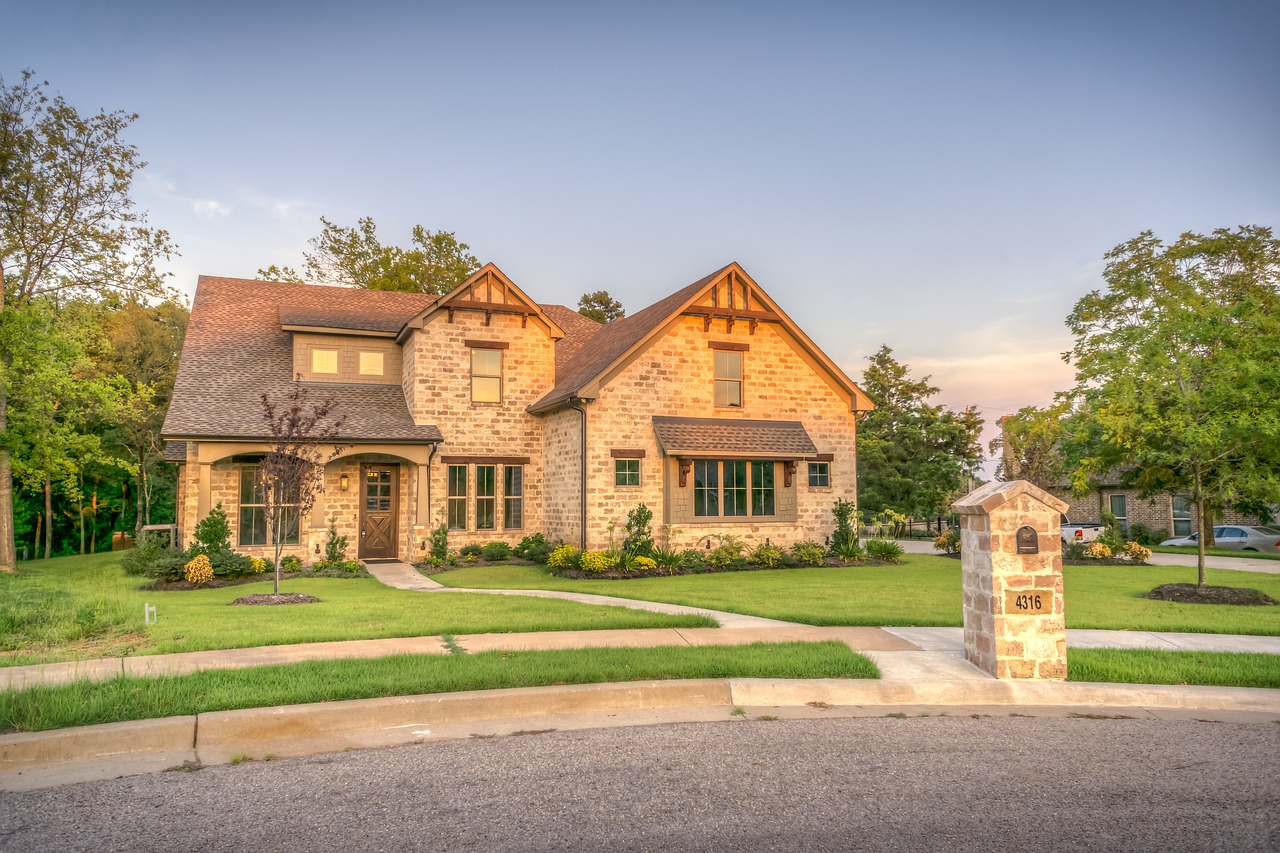
Choosing Accommodations Wisely
When it comes to finding a place to stay while you’re on the move, can make all the difference in your overall experience. After all, your home away from home should feel secure and comfortable, right? You wouldn’t want to spend your nights tossing and turning, worrying about your safety or the safety of your belongings. So, what should you look for when selecting your next temporary abode?
First and foremost, consider the location. It’s essential to choose a neighborhood that is known for its safety. Look for areas that have a low crime rate and are well-lit at night. You can check local crime statistics online or read reviews from previous travelers to get a sense of the area. A vibrant neighborhood with local shops and restaurants can also enhance your experience, giving you a taste of the local culture.
Next up, let’s talk about security features. Not all accommodations are created equal, and some come with added layers of security. When browsing options, pay attention to details like:
- Secure entry points (like keycard access or coded entries)
- On-site security personnel
- Surveillance cameras in common areas
- Safe deposit boxes for your valuables
These features can significantly enhance your peace of mind while you’re away from your primary residence.
Another critical factor is reading reviews. Websites like TripAdvisor or Airbnb allow travelers to leave feedback about their stays. Look for comments regarding safety and security. Did previous guests feel safe? Were there any incidents reported? This information can be invaluable in making your decision. Remember, a glowing review about the decor won’t matter much if the location is sketchy!
Additionally, consider the type of accommodation that suits your needs. Are you looking for a hotel, a hostel, or perhaps a vacation rental? Each option has its pros and cons. Hotels often come with security staff and controlled access, while hostels can offer a more communal feel but may lack privacy and security measures. Vacation rentals might provide the comforts of home but require you to do a bit more research to ensure they are secure.
Finally, don’t forget to trust your instincts. If something feels off about a place, it’s better to err on the side of caution. Sometimes, a gut feeling can save you from a potentially unsafe situation. After all, you want to enjoy your travels without worrying about your safety or your belongings!
In conclusion, choosing accommodations wisely is about understanding your needs, doing your research, and prioritizing safety. By keeping these tips in mind, you can ensure that your stay is not just comfortable but also secure, allowing you to focus on what really matters—enjoying your adventures as a digital nomad!
1. What should I prioritize when choosing accommodations?
Focus on safety, location, and security features. Read reviews and trust your instincts.
2. Are hostels safe for digital nomads?
While many hostels are safe, it’s important to research the specific hostel and read reviews regarding security.
3. How can I ensure my belongings are safe while traveling?
Look for accommodations with secure entry points and consider using safe deposit boxes for valuables.
4. What type of accommodation is best for long-term stays?
Vacation rentals or serviced apartments often provide the comforts of home and are ideal for longer stays.
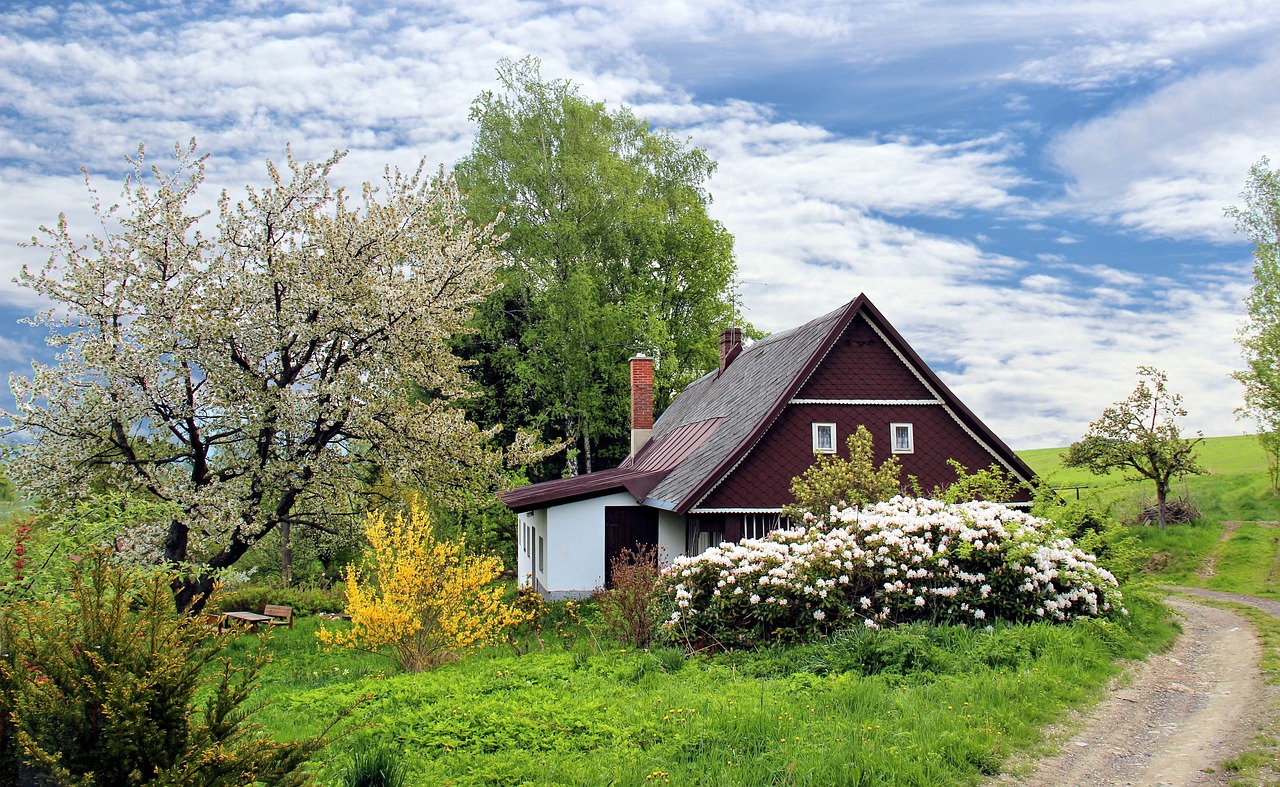
Maintaining Awareness
When you're on the move as a digital nomad, maintaining awareness is not just a good practice—it's a necessity. Imagine you're walking through a bustling market in a foreign city, your eyes glued to your phone, scrolling through social media. Suddenly, you feel a tug at your bag. That moment of distraction could cost you your belongings, or worse, put you in a compromising situation. Staying alert allows you to enjoy your travels while keeping yourself and your possessions safe.
One of the most effective strategies for maintaining awareness is to develop a habit of scanning your surroundings. This means not only looking out for potential threats but also being aware of the people around you. Are they behaving unusually? Is someone lingering a bit too long? By tuning into your environment, you can often spot trouble before it finds you. Remember, your intuition is a powerful tool—trust it!
While you’re out and about, consider the following tips to enhance your situational awareness:
- Limit Distractions: Keep your phone in your pocket while walking through crowded areas. Instead, take in your surroundings. This simple act can help you notice things you might otherwise miss.
- Know Your Route: Familiarize yourself with your destination before you head out. Use maps or navigation apps to plan your journey, reducing the time you spend looking lost.
- Trust Your Gut: If something feels off, it probably is. Don’t hesitate to change your plans if you sense danger.
Another excellent way to enhance your awareness is to engage with the local community. Strike up conversations with locals or fellow travelers. Not only does this provide you with valuable insights about the area, but it also helps you stay alert. People often share tips about safe places to visit and areas to avoid. Plus, connecting with others can enrich your travel experience, turning a solo adventure into a shared journey.
Finally, consider joining local groups or forums where you can gather information about safety and security in the regions you plan to visit. Websites like Meetup or local Facebook groups can be great resources. You can find out about community events, safety tips, and even travel companions, making your travels safer and more enjoyable.
In conclusion, maintaining awareness is about being present and engaged with your surroundings. By reducing distractions, trusting your instincts, and actively seeking out information, you can navigate the world as a digital nomad with confidence and security. It's not just about protecting your belongings; it's about ensuring that your journey remains enjoyable and stress-free!
1. What are some signs that I should be aware of when traveling?
Look for unusual behavior, such as someone following you or lingering too close. Also, be mindful of people who seem overly interested in your belongings.
2. How can I keep my belongings secure while traveling?
Use anti-theft bags, keep your valuables close, and avoid displaying expensive items in public. Always be aware of your surroundings when accessing your belongings.
3. Is it safe to use my phone in public?
While it's generally safe, be cautious in crowded areas. If you need to use your phone, try to step aside in a less crowded spot.
4. Should I trust strangers I meet while traveling?
Be friendly but cautious. Trust your instincts and avoid sharing personal information too soon. It’s okay to be polite while maintaining a level of distance.
Frequently Asked Questions
- What are the main security risks for digital nomads?
Digital nomads face several unique security risks, including theft of personal belongings, data breaches, and property damage. Being constantly on the move can make it challenging to keep your possessions safe, especially in unfamiliar environments. It's essential to be proactive and implement security measures to mitigate these risks.
- How can I secure my home while I'm traveling?
To secure your home base, consider installing a comprehensive security system, such as alarm systems or video surveillance. Utilizing smart locks can also enhance security by allowing you to control access remotely. Reinforcing entry points, like doors and windows, can further deter potential intruders.
- What should I look for in a security system?
When choosing a security system, evaluate the types available, including traditional alarm systems, video cameras, and smart home technology. Look for features that suit your lifestyle, such as remote access, motion detection, and integration with other smart devices. This will help you make an informed decision that aligns with your security needs.
- Are smart home devices worth the investment?
Absolutely! Smart home devices like cameras and motion sensors can significantly enhance your home security. They offer real-time alerts and remote monitoring capabilities, allowing you to keep an eye on your property from anywhere in the world. This added layer of protection can provide peace of mind while you travel.
- Should I consider professional monitoring services?
Investing in professional monitoring services can be a game changer for your home security. These services provide 24/7 monitoring, ensuring that any alarms trigger an immediate response. This can enhance your peace of mind, knowing that your home is being watched even when you're miles away.
- How can I protect my digital assets while traveling?
Securing your digital assets is crucial in today's tech-driven world. Use strong, unique passwords for all your accounts and enable two-factor authentication wherever possible. Regularly update your software and be cautious about using public Wi-Fi networks, as they can expose you to data breaches.
- What should I consider when choosing accommodations?
When selecting accommodations, prioritize security features such as in-room safes, secure entry systems, and positive reviews from other travelers. Additionally, consider the location; staying in a well-reviewed area can significantly enhance your safety while traveling.
- How can I stay aware of my surroundings while traveling?
Maintaining awareness of your environment is key to personal safety. Stay alert to any unusual behavior and trust your instincts. Avoid distractions like excessive phone use when in public spaces, and take note of exit routes and safe places nearby wherever you go.



















